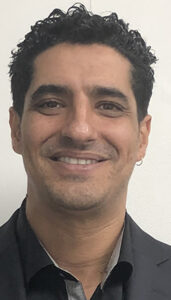By Shahar Masori

SAN DIEGO — When I was living in Tel Aviv, life seemed to run at this fast, almost chaotic pace. Mornings would start early, but not in the same calm way you might imagine in some American suburbs. No, the streets were already buzzing by 7 a.m., people rushing to work, kids off to school, and the constant hum of scooters zipping through narrow streets was already there. In Israel, it’s like life jumps out of bed ready to tackle the day—intense, focused, and somehow always in a rush.
By 9 a.m., most Israelis are already deep into their workday. Lunch breaks aren’t long; it’s a quick falafel grabbed on the go or a quick coffee at a corner café, and then you’re back at it. Most businesses don’t have a designated lunch hour. The mindset is very much, “Let’s get this done.” By the time evening rolls around, if you’re lucky enough to have some free time, it’s not uncommon for people to head out with friends or family. Weeknights are still alive with social energy. You’ll find cafés buzzing, people taking walks along the beach, or meeting up at a local bar.
Here in San Diego, life has a different rhythm. It’s slower in comparison, and more structured. You wake up, maybe around 6 or 7 a.m., and there’s often this quiet, peaceful start to the day. You have your morning coffee, maybe squeeze in some exercise, and ease into your day. There’s no frantic rush like in Tel Aviv—at least not usually.
By 9 a.m., Americans are also at work, but the work culture here feels different. There’s more emphasis on boundaries. You’ll often hear people talking about work-life balance, something that’s still finding its footing back in Israel. Here, people respect your weekend, your time off, and your evenings are often reserved for family time or personal hobbies. It’s more deliberate. In fact, people make plans around how to wind down at the end of the day. It might be a run along the coast, grilling out back with family, or maybe even just relaxing with Netflix. The pace of life is more methodical.
Another difference is the weekends. Ah, the weekend! In Israel, the weekend is mostly just Saturday—Shabbat, a day of rest and reflection. Sunday? Well, it’s just the start of another workweek. So, Israelis have mastered the art of squeezing all their leisure into this one day, and often, it’s filled with family visits, gatherings, and meals. But here in the U.S., you get both Saturday and Sunday, and I’ve seen how Americans use this time to recharge. It’s much more spaced out. Saturday might be the day for fun, exploring, going to a baseball game or taking a hike. And Sunday? that’s when you rest, prepare for the week ahead, and get in some quality downtime.
Even grocery shopping is different! In Israel, you’ll often shop daily or every few days, picking up fresh bread, vegetables, and ingredients. In the U.S., it’s common to do one big grocery run for the week—stock up on everything in bulk, as if preparing for a mini-apocalypse, and then you’re set.
What about family life? That’s a whole other story. In Israel, extended family is very involved, and visiting your parents or siblings is an integral part of your routine, no matter your age. It’s not unusual for adult children to visit their parents’ multiple times a week, sometimes even daily. But in the U.S., people often live far apart, so family gatherings are more structured around holidays or special occasions.
I think about how, at age 25 and beyond, life in both countries holds similarities in terms of responsibilities—work, family, home—but the way we approach those responsibilities differs. Israelis tend to live life with intensity and spontaneity, like everything is happening all at once, and the next moment could change it all. In America, life is planned, segmented, with clear-cut times for work, play, and rest.
Both approaches have their strengths, and I find myself a bit of both these days. Some mornings I wake up with that Tel Aviv energy—ready to hit the ground running. Other days, I take a page out of San Diego’s book, sitting back with my coffee, taking a breath, and letting the day come to me.
In the end, it’s not about which is better, but how these rhythms reflect the spirit of each place. In Israel, life’s unpredictability is embraced, while in the U.S., people seem to strive for balance and control. And I, lucky enough to call both places home, carry a bit of both with me.
*
Shahar Masori was raised in Hadera, Israel, and immigrated to San Diego in 2000, where he helped build a balloon decor business and raised two sons.